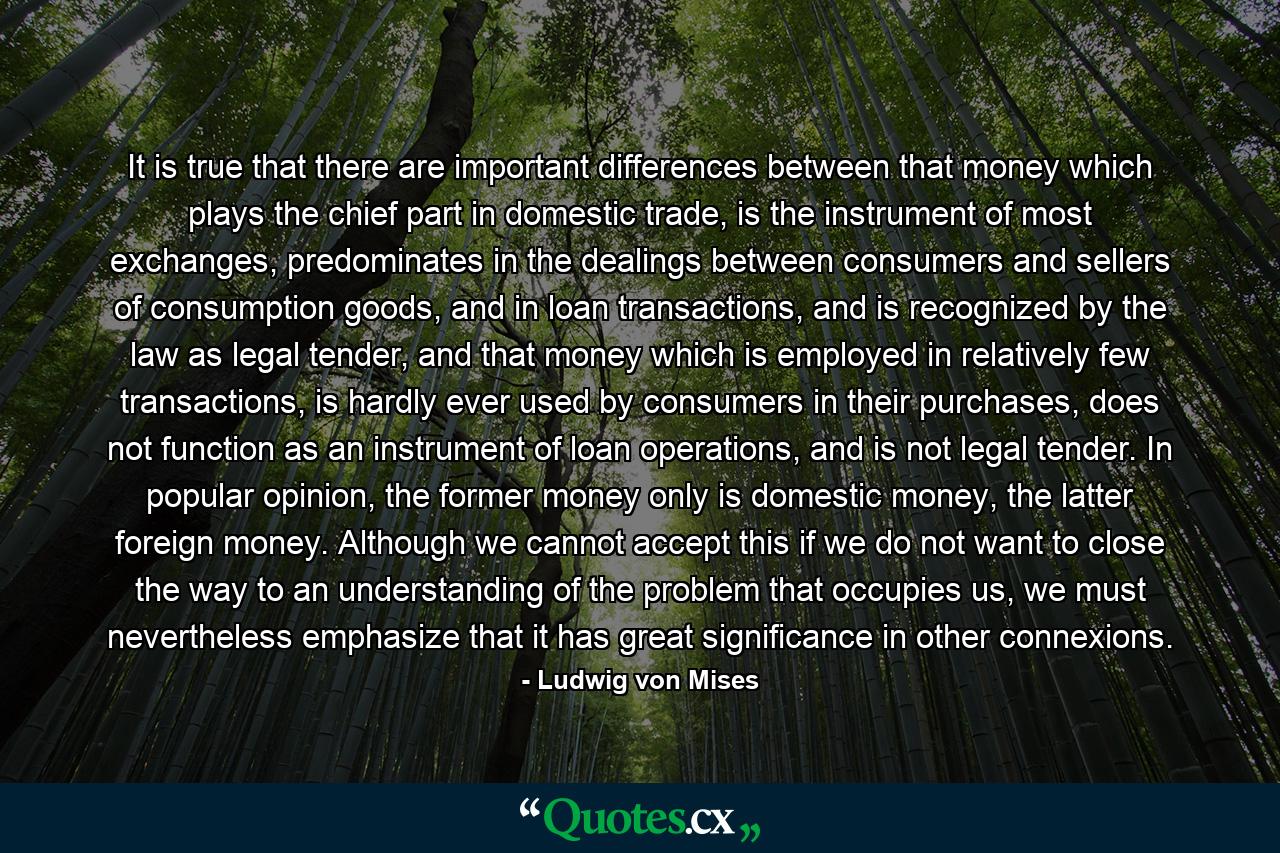It is true that there are important differences between that money which plays the chief part in domestic trade, is the instrument of most exchanges, predominates in the dealings between consumers and sellers of consumption goods, and in loan transactions, and is recognized by the law as legal tender, and that money which is employed in relatively few transactions, is hardly ever used by consumers in their purchases, does not function as an instrument of loan operations, and is not legal tender. In popular opinion, the former money only is domestic money, the latter foreign money. Although we cannot accept this if we do not want to close the way to an understanding of the problem that occupies us, we must nevertheless emphasize that it has great significance in other connexions.
